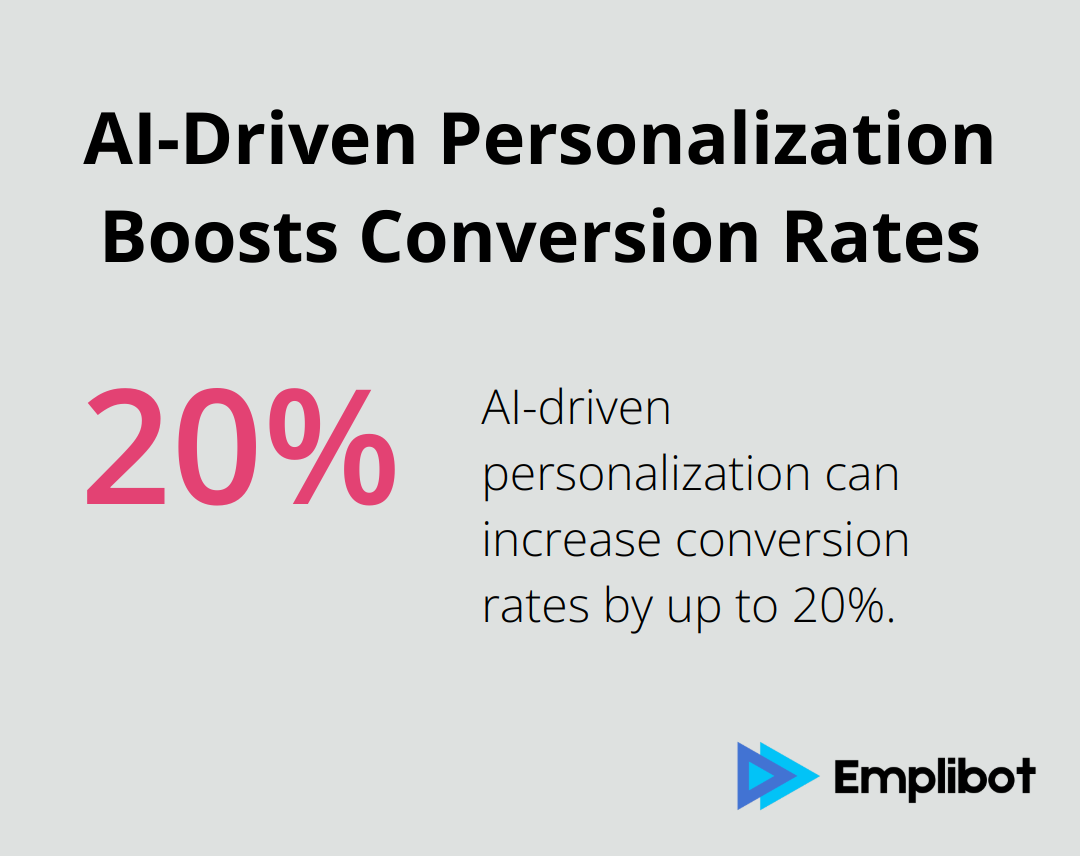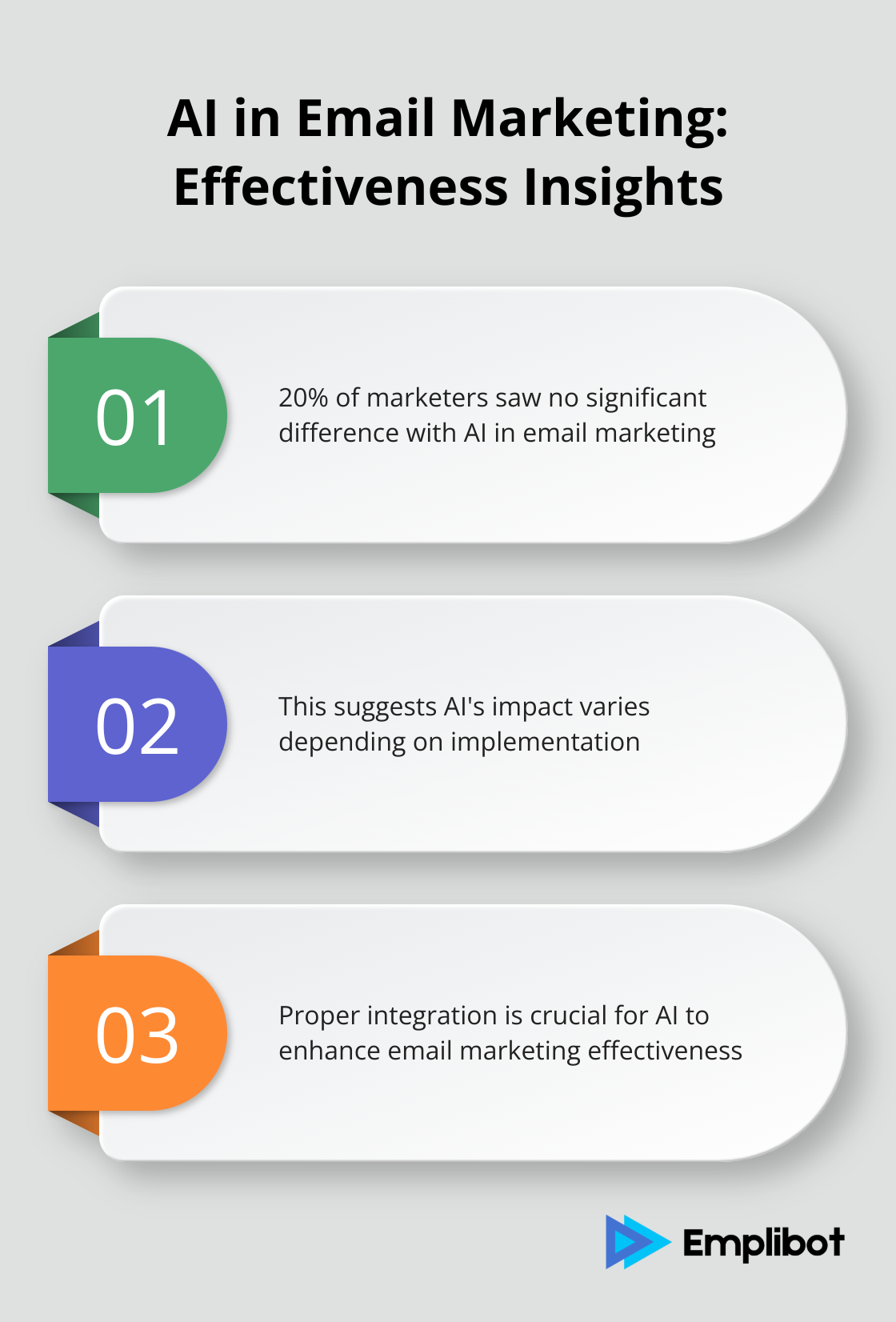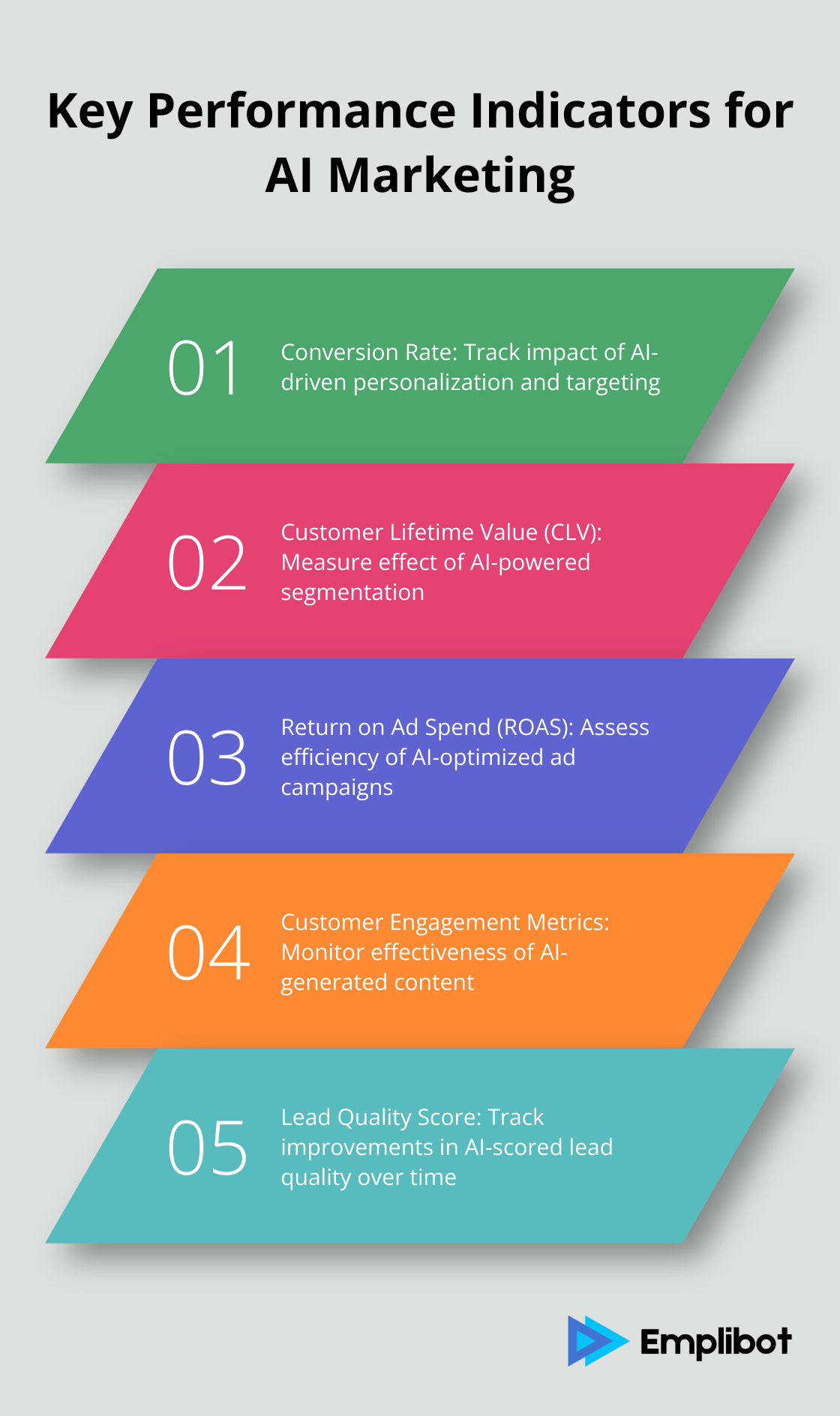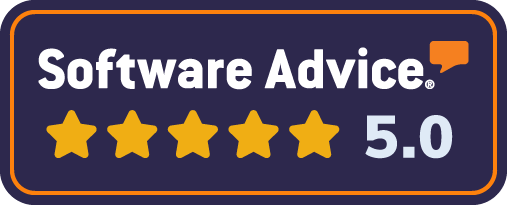AI marketing strategies are revolutionizing how businesses connect with customers. At Emplibot, we’ve seen firsthand how AI-driven approaches can dramatically boost marketing effectiveness and ROI.
This guide will walk you through creating a powerful AI marketing strategy for your business. We’ll cover everything from understanding AI’s role in marketing to implementing and measuring AI-driven initiatives.
Contents
ToggleWhat is AI Marketing?
AI marketing revolutionizes how businesses connect with customers. It uses artificial intelligence technologies to make data-driven decisions and automate marketing tasks based on data collection, analysis, and interpretation. At its core, AI marketing leverages machine learning algorithms and data analysis to make smarter, faster marketing decisions.
The Building Blocks of AI Marketing
The key technologies that drive AI marketing include:
- Machine learning: Algorithms analyze vast amounts of customer data to identify patterns and predict future behaviors.
- Natural language processing: Enables chatbots and voice assistants to interact with customers in human-like ways.
- Predictive analytics: Uses historical data to forecast future trends and customer actions.
Real-World Applications of AI in Marketing
AI transforms various aspects of marketing. Netflix uses AI to personalize movie recommendations for each user, resulting in a 75% increase in viewer engagement. Spotify’s Discover Weekly is a series of custom-made AI playlists, uniquely crafted each Monday for every user by the platform’s AI algorithms.
The Game-Changing Benefits of AI Marketing
The benefits of AI-driven marketing strategies are substantial. A study by McKinsey confirms the explosive growth of generative AI tools. This boost comes from improved targeting, personalization, and efficiency.
One of the most significant advantages is the ability to deliver hyper-personalized experiences at scale. AI algorithms analyze vast amounts of user data, including browsing history, purchase behavior, and demographic information, to create highly personalized content and offers. This level of personalization can increase conversion rates by up to 20% (according to research by Monetate).

AI also dramatically improves efficiency. Marketers using AI report saving an average of 3.5 hours per week on routine tasks (as per a survey by Salesforce). This time savings allows marketing teams to focus on more strategic, creative work.
Enhanced Decision-Making with AI
AI enhances decision-making by providing real-time insights. For instance, AI-powered tools analyze social media sentiment in real-time, allowing brands to quickly respond to emerging trends or issues. This agility can be crucial in managing brand reputation and capitalizing on opportunities.
As we move forward, it’s important to understand how to implement AI effectively in your marketing strategy. The next section will explore the practical steps to integrate AI into your marketing efforts, ensuring you harness its full potential.
How to Implement AI in Your Marketing Strategy
Identify High-Impact Areas for AI Integration
To implement AI in your marketing strategy, start by analyzing your current marketing processes. Pinpoint areas where AI can make the biggest difference. Focus on tasks that consume time, repeat often, or require processing large amounts of data.
Email marketing stands out as a prime candidate for AI integration. A study by Statista shows that roughly 20 percent of marketers noticed no significant difference or believed AI was as effective as traditional approaches in email marketing. This suggests that while AI can be beneficial, its impact may vary depending on implementation and specific use cases.

Customer segmentation also benefits greatly from AI. Traditional methods often take weeks to segment customers effectively. AI, however, performs this task in real-time, continuously updating segments based on the latest data. This dynamic approach leads to more targeted campaigns and higher conversion rates.
Choose the Right AI Tools for Your Needs
Selecting appropriate AI tools is essential for success. Begin with a clear understanding of your goals and the specific problems you aim to solve. For content creation, consider AI writing assistants that generate blog posts, social media updates, and ad copy. If customer service is your focus, explore AI-powered chatbots that handle routine inquiries (freeing up your team for more complex issues).
When evaluating AI marketing platforms, prioritize those that integrate seamlessly with your existing tech stack. Compatibility issues can derail even the most promising AI initiatives. Also, look for tools that offer customization. The best AI solutions allow you to fine-tune algorithms to match your unique business needs and customer base.
Prepare Your Team for the AI Transition
The success of AI implementation depends on your team’s ability to work alongside these new technologies. Invest in comprehensive training programs that teach both the technical aspects of AI tools and the strategic thinking required to leverage AI effectively.
Form cross-functional teams that bring together marketers, data scientists, and IT professionals. This collaborative approach ensures that AI initiatives align with marketing goals and technical capabilities.
Foster a culture of continuous learning and experimentation. AI technologies evolve rapidly, and your team needs to stay ahead of the curve. Set up regular workshops, invite industry experts for talks, and allocate time for team members to explore new AI applications in marketing.
Monitor and Iterate
Implementing AI in your marketing strategy is an ongoing process. Start with pilot projects and measure results rigorously. Be prepared to make adjustments based on the outcomes. Use key performance indicators (KPIs) specific to your AI initiatives to track progress and identify areas for improvement.
Regular assessment of your AI tools’ performance is crucial. As your business evolves, so should your AI strategy. Stay informed about new AI developments in the marketing field and be ready to adopt new tools or techniques that could enhance your strategy.
The next step in creating an effective AI marketing strategy involves measuring the success of your AI initiatives. Understanding how to track and analyze the performance of your AI-driven marketing efforts will help you refine your approach and maximize your return on investment.
How to Measure AI Marketing Success
Define Relevant Key Performance Indicators (KPIs)
The first step to measure AI marketing success involves establishing relevant Key Performance Indicators (KPIs). These metrics should align with your overall business objectives and the specific goals of your AI initiatives. Common KPIs for AI marketing include:

Utilize Advanced Analytics Tools
To effectively track these KPIs, you’ll need robust analytics tools. Google Analytics remains a staple for tracking website performance, but AI-specific tools can provide deeper insights:
- IBM Watson Analytics: This powerful tool uses natural language processing to help you uncover patterns and insights in your marketing data.
- Adobe Analytics: Offers AI-powered anomaly detection and contribution analysis to identify significant changes in your metrics and their root causes.
- Salesforce Einstein Analytics: Provides predictive analytics and AI-driven recommendations for improving marketing performance.
- Mixpanel: Uses machine learning to segment users and predict future behaviors based on past interactions.
When you select analytics tools, prioritize those that integrate seamlessly with your existing marketing stack and offer real-time data processing capabilities.
Implement Continuous A/B Testing
A/B testing is a critical component of measuring and improving AI marketing success. Use AI-powered A/B testing tools to continuously experiment with different aspects of your marketing campaigns:
- Subject Lines: Test AI-generated email subject lines against human-written ones to improve open rates.
- Ad Copy: Compare the performance of AI-created ad copy with traditional versions across various platforms.
- Landing Page Elements: Use AI to optimize landing page layouts, CTAs, and content for better conversion rates.
- Personalization Strategies: Test different AI-driven personalization approaches to find the most effective ones for your audience.
Run tests for a statistically significant period and consider factors like seasonality that might affect results (this approach will help you avoid drawing premature conclusions).
Analyze and Iterate
The key to successful AI marketing measurement lies in consistent analysis and iteration. Regular review of your KPIs and A/B test results will help you identify trends, patterns, and areas for improvement. Use these insights to refine your AI marketing strategies and tactics.
Try to create a feedback loop where your AI systems learn from past performance data to continuously improve future campaigns. This iterative process (which combines human insight with machine learning) can lead to significant improvements in marketing effectiveness over time.
Final Thoughts
AI marketing strategies have transformed how businesses connect with their audience. Companies now deliver hyper-targeted campaigns that resonate with individual customers on a massive scale. The future of AI in marketing promises more sophisticated chatbots, voice assistants, and virtual reality experiences that create immersive brand interactions.
To start your AI marketing strategy, identify areas in your current processes that could benefit from automation or enhanced data analysis. Select AI tools that align with your specific needs and integrate well with your existing tech stack. Set clear KPIs and regularly measure the performance of your AI initiatives (using advanced analytics tools to track metrics like conversion rates and customer lifetime value).
At Emplibot, we’ve observed how AI can enhance content marketing efforts. Our platform automates WordPress blogging and social media management, handling tasks from keyword research to content creation and distribution. AI can help businesses increase their online presence, generate more leads, and boost sales without extensive manual effort.


![AI Marketing: Lead Generation [Guide]](https://wp.emplibot.com/wp-content/uploads/emplibot/ai-marketing-lead-generation-1753859292-768x456.jpeg)
![AI Marketing: Predictive Lead Scoring [Guide]](https://wp.emplibot.com/wp-content/uploads/emplibot/predictive-lead-scoring-1753772819-768x456.jpeg)

![Google Autocomplete for Keyword Research [Guide]](https://wp.emplibot.com/wp-content/uploads/emplibot/google-autocomplete-for-keyword-research-1753600089-768x456.jpeg)




